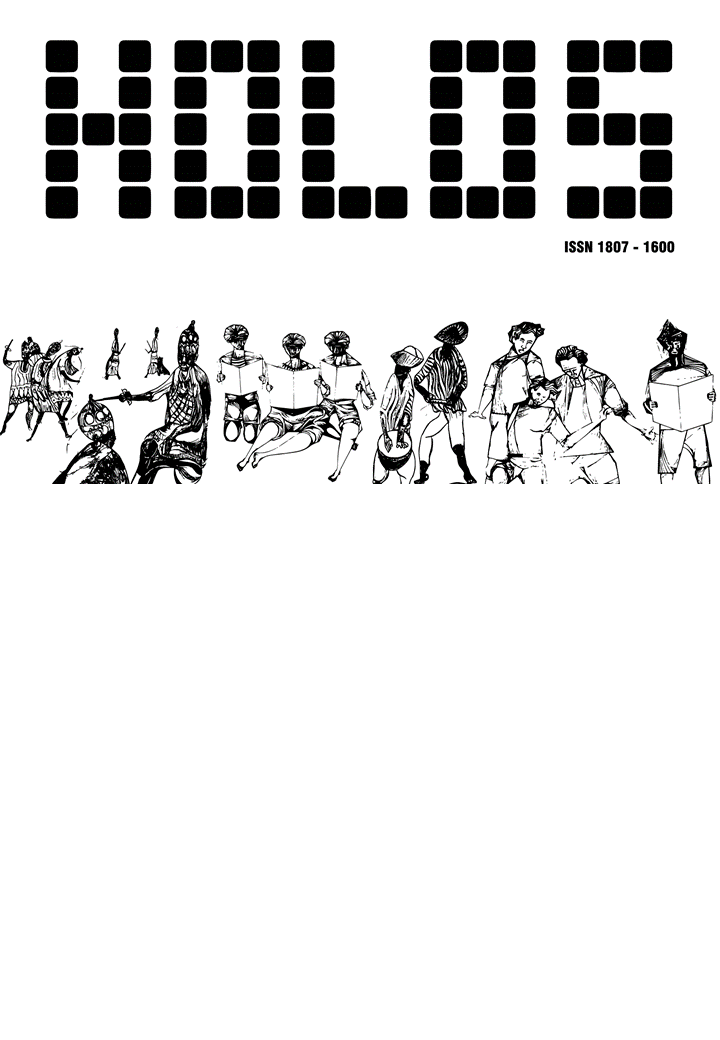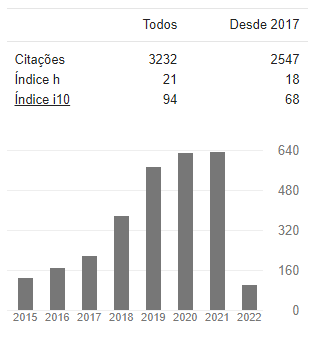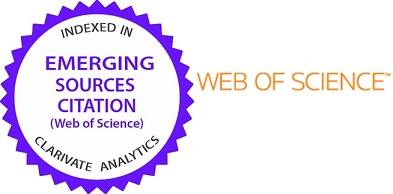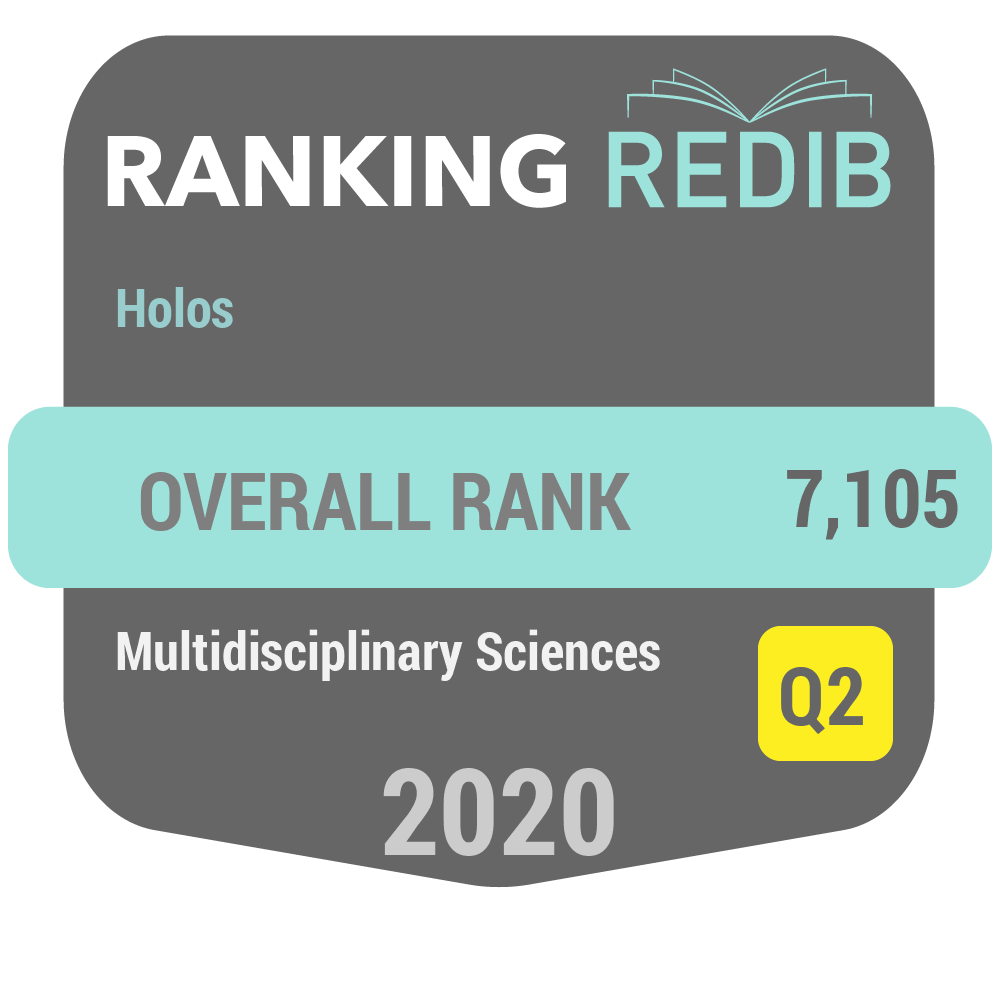SUSTAINABILITY PRACTICES IN FOOD SERVICE: WASTE ANALYSIS AS A FIRST STEP
Palavras-chave:
Food service, food waste, sustainability, food handler.Resumo
This study aimed to evaluate solid waste management in a restaurant by the quantification of wastes in all production processes and to promote strategies and actions to reduce them. For the food waste was considered plate waste and leftovers. Regarding the actions to minimize food waste, the authors appointed some recommendations to improve the food service process. A total of 14.934 Kg of organic waste and 2.030 kg of inorganic waste was observed during a 30-days production. The leftover-ingestion index pointed out a high average value which can impact wasted meals and higher costs. The results showed an environmental management problem relating to solid waste generation, highlighting the necessity of optimizing the meal production process for the improvement of sustainable practices, particularly related to environmental education. Food waste has indeed become an issue of great public concern. The 2030 Agenda for Sustainable Development reflects the increased global awareness of the problem. The concepts of sustainable management have increasingly been on many agendas of the business associations, especially the foodservice and production of collective meals.
Downloads
Referências
Botelho, R.A.; Camargo, E.B. (2005). Dietary technique - Selection and Preparation of Food - Laboratory Manual. 1a. ed. São Paulo: Atheneu, v. 1. 167p.
Brazil. Law nº. 8.473 of June 22, 2015. Establish the minimum percentage for the acquisition of foodstuffs of family farmers. Official Journal of Federative Republic of Brazil, Brasília, DF, June 22, 2015.
Canepa, J.R.L., Larios, C.Z., Treviño, M.E.M.V., Sanchez, D.I.G. (2011). Basic diagnosis of solid waste generated at Agua Blanca State Park to propose waste management strategies, J Waste Manag Res; 30(3):302–310.
Carmo, S.O., Lima, T.P. (2011). Evaluation of the Clean overproduction Index in Institutional Food and Nutrition Units in the city of Campo Grande / MS, J of Agr Sci, Biol Health; 15(6):1-12.
Castro, F.A.F. Queiroz VMV. Menu: Planning, elaboration and etiquette. Viçosa: University Federal of Viçosa, 1998.
da Cunha, J.A., Rolim, P.M., Damasceno, K.S.F.S.C., de Sousa Júnior, F.C., Nabas, R.C., Seabra, L.M.J. (2020) From seed to flour: Sowing sustainability in the use of cantaloupe melon residue (Cucumis melo L. var. reticulatus). PLoS One 15(1): e0219229. https://doi.org/10.1371/journal.pone.0219229
De Laurentiis, V., Hunt, D.V.L., Rogers, C.D.F. (2017). The little book of low carbon eating in the city. Lancaster: Lancaster University. 3. http://www.energy.soton.ac.uk/files/2017/12/littlebookoflowcarboneatinginthecity.pdf
Falasconi, M., Vittuari, A., Politano, A. (2015). Food Waste in School Catering: An Italian Case Study. Sustainability, 7: 14745-14760.
FAO (2014). Food losses and waste in the context of sustainable food systems. High-Level Panel of Experts on Food Security and Nutrition of the Committee on World Food Security, Rome.
Harmon, A.H., Gerald, B.L. (2007). Position of the American dietetic association: food and nutrition professionals can implement practices to conserve natural resources and support ecological sustainability, J. Am. Diet. Assoc; 107 (6): 1033e1043.
Melo, V.T.P., Strasburg, V.J. (2020). Waste generation in the acquisition of vegetables in nature and minimally processed by nutrition and dietary service of a public hospital. Braz. J. Food Technol; 23: e2019069.
Ministry of the Environmental. Brazil. Law nº. 12.305 of August 2, 2010. National Solid Waste Policy; Official Journal of Federative Republic of Brazil, Brasília, DF, 3 Aug.2010.
Ministry of the Environmental. Brazil. Socio-environmental responsibility: waste management. Brasília: 2018 [access in Mar 28, 2019]. Available in: http://www.mma.gov.br.
Mota, E.B.F., Bezerra, I.W.L., Seabra, L.M.J., Silva, G.C.B., Rolim, P.M. (2017). Methodology of evaluation of sustainable menu for food services, J Holos; 2(33): 1-5.
O'Kane, G. (2011). What is the real cost of our food? Implications for the environment, society, and public health nutrition, Pub Health Nutr; 15(2): 268–276.
Pedro, M.M.R., Claro, J.A.C.S. (2010). Losses Management in a Popular Restaurant Unit: A Case Study, J Qualit@s; 9(1): 1-4.
Pirani, S.I., Arafat, H.A. (2014). Solid waste management in the hospitality industry: a review. J Environ Managem, 146, 320-336. PMid:25194519. http://dx.doi.org/10.1016/j.jenvman.2014.07.038
Rodrigues, C.M., Bastos, L.G., Cantarelli, G.S., Stedefeldt, E., Cunha, T.D., Saccol, A.L.F. (2020). Sanitary, nutritional, and sustainable quality in food services of Brazilian early childhood education schools. Child Youth Serv Rev., 104920.
Rossi, E., Bussulo, C., Proença, R. (2010). ISO 14000 in the Meals Productive Process: Implementation and Evaluation of an Environmental Management System, Rev Nutr Pauta; 1-6.
Silva, E.M.N., Stedefeldt, R.M., Saccol, A.L.F. (2015). Good Sustainable Practices Program for Food Services. Bus Manag Rev.; 4 (8): 608-619.
Silva, A.M., Silva, C.P., PESSINA, E.L. (2010) Avaliação do índice de resto ingesta após a campanha de conscientização dos clientes contra o desperdício de alimentos em um serviço de alimentação hospitalar. Simbio-Logias, 3 (4), 43-56.
Strasburg, V.J., Jahno, V.D. (2017). Application of eco-efficiency in the assessment of raw materials consumed by university restaurants in Brazil: A case study. J Clean Prod; 161:178-187.
United Nations. (2015) Transforming Our World: THE 2030 Agenda for Sustainable Development A/RED/70/1; United Nations: New York, NY, USA.
Vaz, C.S. Restaurants - controlling costs and increasing profits. Metha Editor, Brasília, 2006.
Downloads
Publicado
Como Citar
Edição
Seção
Licença
Copyright (c) 2022 HOLOS

Este trabalho está licenciado sob uma licença Creative Commons Attribution-NonCommercial-NoDerivatives 4.0 International License.





































